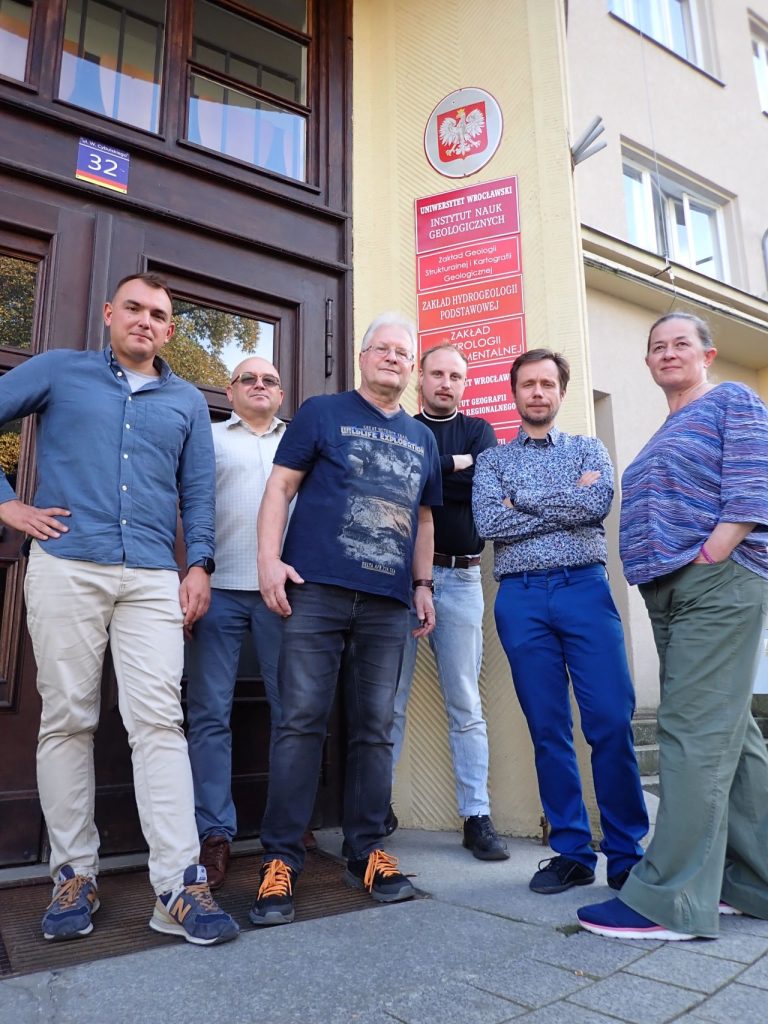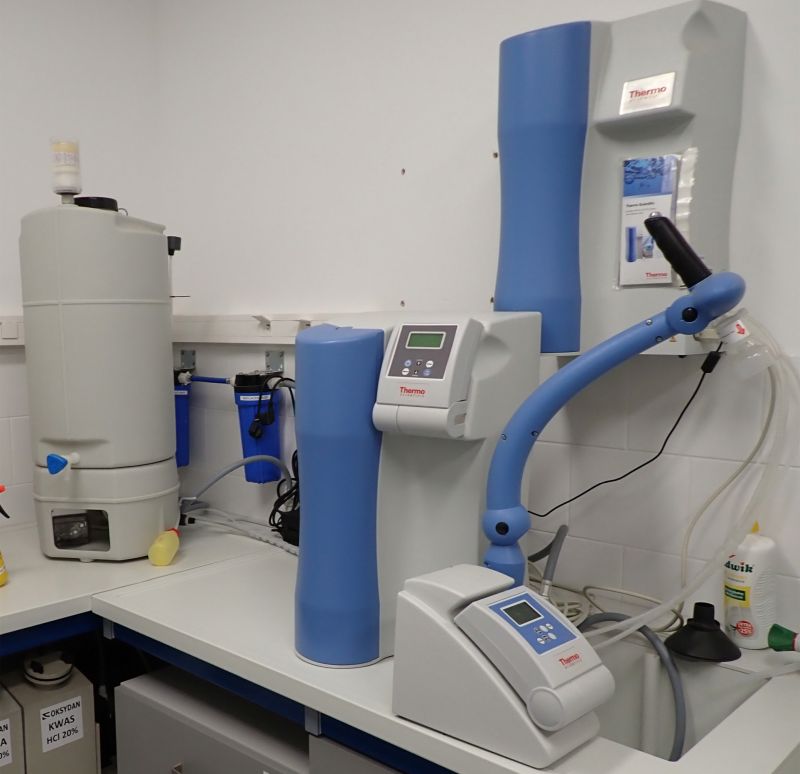
Department of Structural Geology and Geological Mapping
Our research focuses on structural geology and tectonics, sedimentology, analysis of sedimentary basins, and the evolution of the natural environment at various timescales. We extensively use modern methods of geological mapping, structural and sedimentological analyses. Our aim is to enhance the understanding of the geological structure and tectonic evolution of selected areas in Poland, elucidate the structure and origin of selected mineral resources, and monitor natural and anthropogenic threats. The department hosts two laboratories: the Cosmogenic Radionuclide Laboratory and the Laboratory of Analog Modelling of Geological Processes, which enable analyses of geological processes based on isotopic records in rocks and their experimental simulation under laboratory conditions, respectively.
Staff:
- Dr. hab. Stanisław Burliga (head of the department)
- Prof. Dr. hab. Paweł Aleksandrowski (professor emeritus)
- Dr. Szymon Belzyt (assistant professor)
- Dr. Artur Sobczyk (assistant professor)
- Prof. Gregory D. Hoke, PhD (visiting professor)
- Aleksandra Błaszczyk, MA (specialist)
- Tomasz Selerowicz, MA (PhD student)
- Mateusz Świerk, MA (PhD student)
- Dr. Alexander Kowalski (teaching cooperation)
Laboratory of Analog Modeling of Geological Processes (head: Dr. hab. Stanisław Burliga)
Using different modelling tables and analogue materials, we construct models of real geological systems and experimentally simulate the development of structures and the course of geological processes in nature at various time scales (from hundreds of millions of years to mere seconds) and at different scales (from global to microscale). Our research mainly addresses the evolution of sedimentary basins and orogenic belts at regional and local scales, deformation of various rock types, and the influence of ductile layers on rock deformation in the Earth’s crust. We are also able to simulate other geological processes in the lab as well as to test e.g. concepts of structure origin on other planets. The lab is also used in teaching courses.

Cosmogenic Radionuclides Laboratory (Head: Dr. Artur Sobczyk)
We analyse the concentration and composition of cosmogenic isotopes in rocks and soil, formed as a result of cosmic radiation impact on rocks and sediments on the Earth’s surface. This enables reconstruction of late Cenozoic tectonic, erosional, and climatic events, including dating the age of landform exposure, estimating the rate of denudation, erosion, and uplift of mountainous areas, determining the age of cave systems, and detailed glacial chronology reconstruction. Our studies primarily focus on the analysis of cosmogenic isotopes like 10Be, 14C, 21Ne, 26Al and 36Cl.

Research projects
Department staff participates in national and international research projects, including collaborative projects with industry and various state institutions.
The current projects:
| NCN Preludium nr 2019/35/N/ST10/03401 | Microstructural analysis and microsedimentology of soft-sediment deformation structures within glacigenic sediments – a key for understanding the sediment mass transport and its impacts in contemporary and ancient glaciated areas | Head: Dr Szymon Belzyt |
| NCN OPUS No. 2019/35/B/ST10/0058 | Chronologia i tempo pogłębiania dolin w Sudetach i Tatrach wyznaczone na podstawie datowania nuklidami kosmogenicznymi wieku pogrzebania osadów jaskiniowych [Chronology and Rate of Valley Deepening in the Sudetes and Tatras Determined Based on Dating the Burial Age of Cave Sediments using Cosmogenic Nuclides] | Head: Prof. Gregory D. Hoke |
Teaching
We offer courses for students of geology, geological engineering and biology in the fields of structural geology and tectonics, geological mapping, sedimentology, ground-penetrating radar methods, geological structure modelling, and geological documentation. We offer diverse bachelor’s and master’s thesis topics, including those in collaboration with the exploration and mining industry.
The courses offered by the department staff at the University of Wrocław include among others:
- Structural geology (including field course)
- Tectonics
- Sedimentology (including field course)
- Geological mapping (including field course)
- Digital geological mapping (including field course)
- Geological mapping in mining (including field course) Analysis and visualization of geological data
- GPR methods (including field course)
- Sedimentary basin analysis (including field course)
- Modeling of geological structures
- Geohazards
A complete list of courses offered by our team is available in the study programs.
Expert activities of the staff of the Department of Structural Geology and Geological Mapping include activities performed for the following institutions:
- Commission on Mineral Resources under the Minister of Climate and Environment
- The General Counsel to the Republic of Poland (expertise in arbitration proceedings)
- Advisory and expert group of the Regional Director for Environmental Protection in Wrocław at the Jaskinia Niedźwiedzia Nature Reserve
- Research commissioned by national parks, the mining industry (e.g., KGHM Polska Miedź S.A., ORLEN group, Geotermia Podhalańska) and research entities such as the Polish Geological Institute – National Research Institute.
